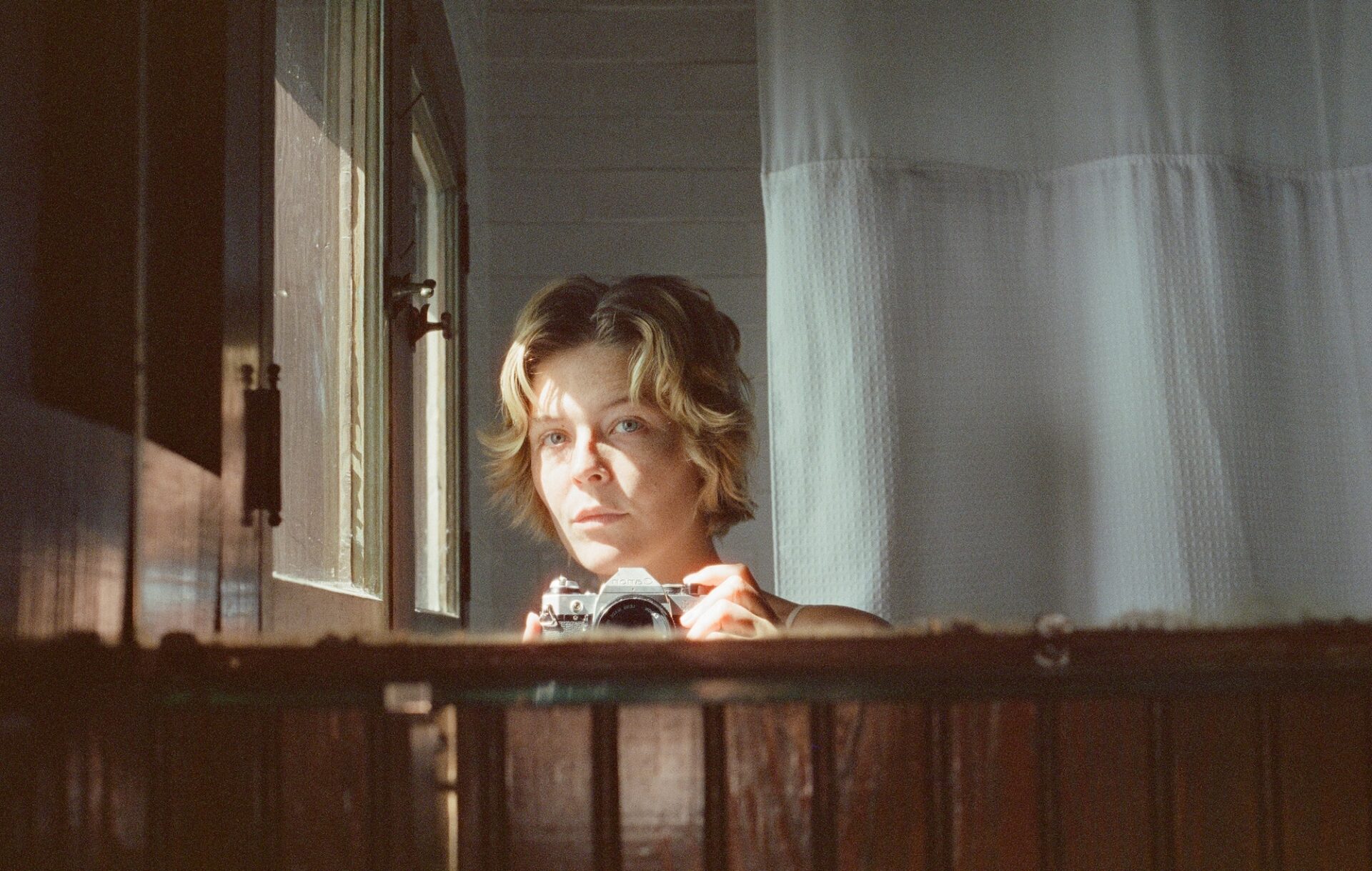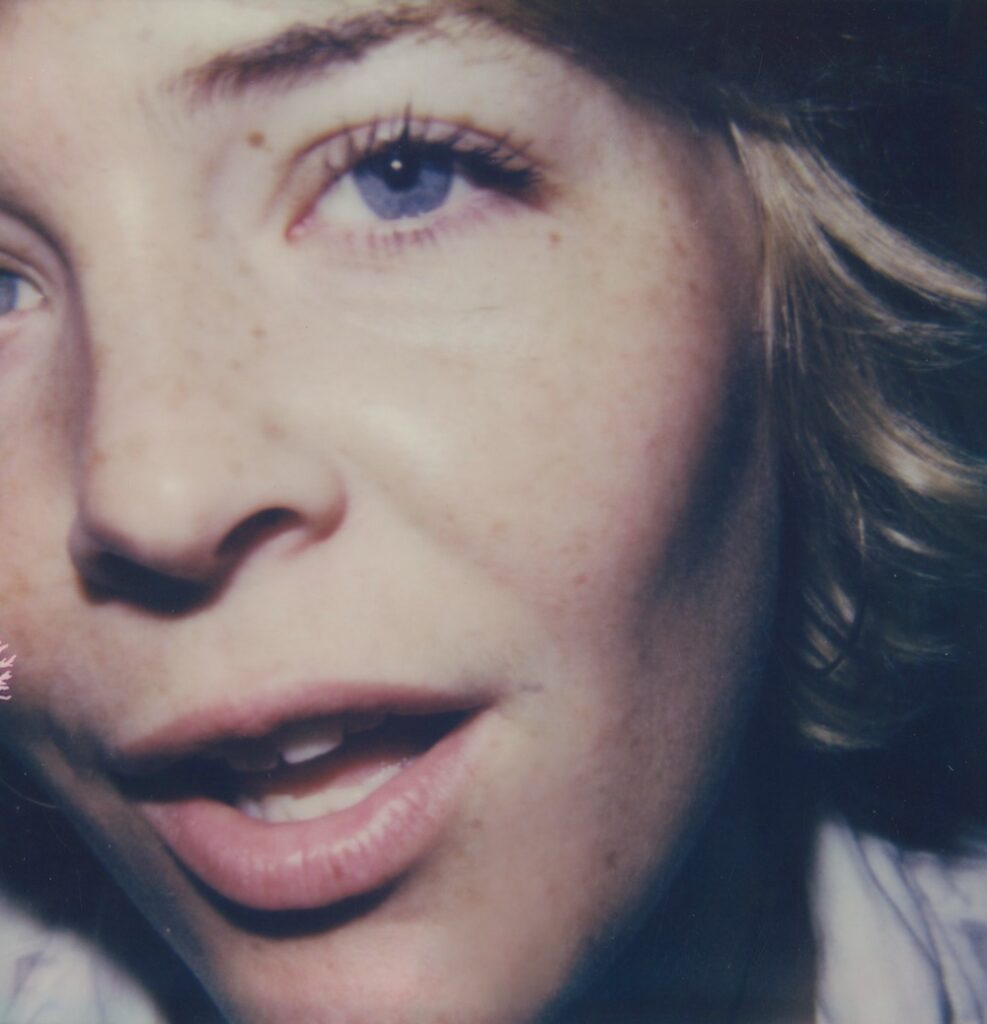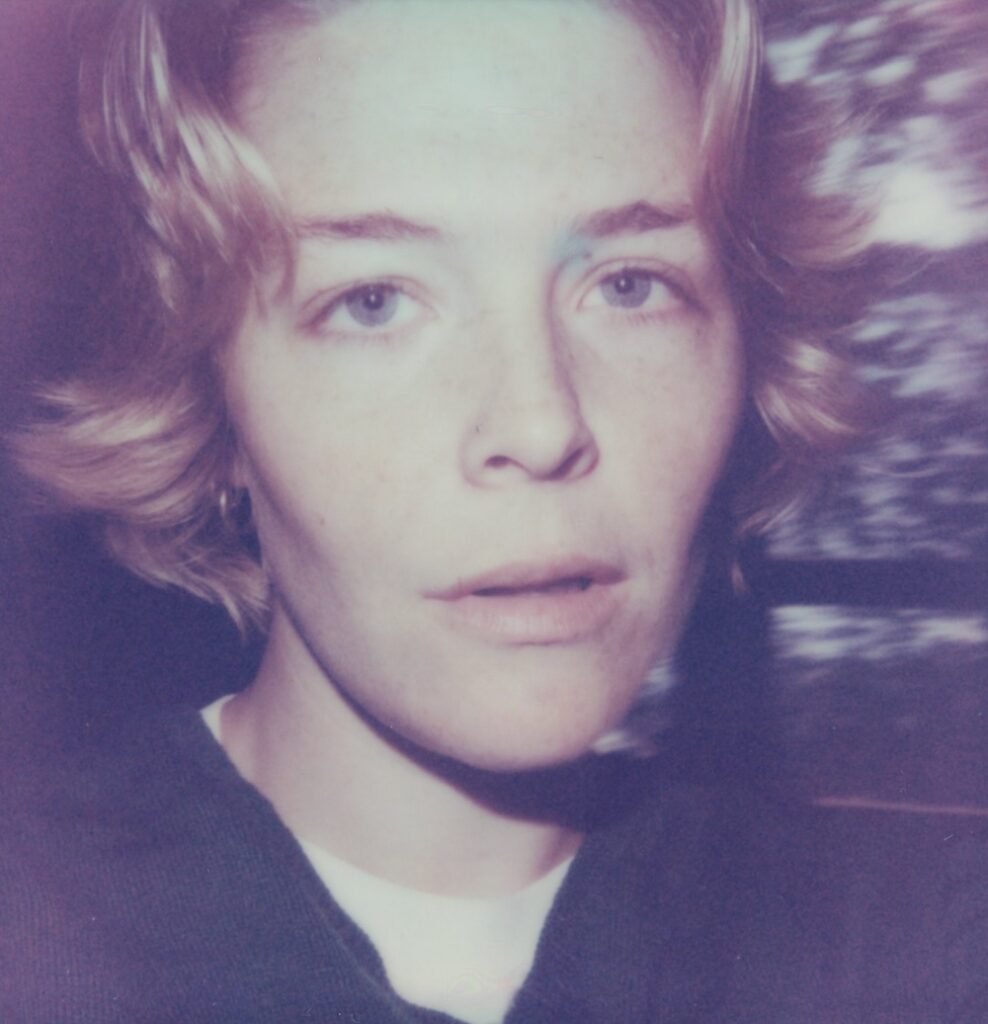Maggie Rogers: ‘In fiction, you can tell some of the greatest truths about your life’
The singer’s instinctive third album, ‘Don’t Forget Me’, was written and recorded in a five-day rush of creativity. “I can do things on my own terms now,” she says, leaning into a looser and more unrestricted new era.

Maggie Rogers wanted to make sure her new album, Don’t Forget Me, was released before her 30th birthday. “I’m definitely feeling the centripetal force of turning the corner,” she laughs, a month before the big day. If the clichés about your thirties being the time when you grow into a more authentic and unselfconscious version of yourself are true, with Don’t Forget Me Rogers has written a manual for herself and the decade to follow.
Written almost by accident in five heady days straddling the end of 2022 and start of 2023, it’s a record made on instinct and with carefree fun at its core, welcoming a breezier sound and new lyrical avenues. On it, she muses on the self-reflection that comes with seeing friends settling down, tells stories of others for the first time, and leans into childlike joy.
Rogers worked alongside producer Ian Fitchuk on Don’t Forget Me, who she had met “for like three minutes” outside a Los Angeles sushi restaurant in 2019. “I kept having this instinct that we could make something really great together,” Rogers tells Rolling Stone UK from a London hotel in late March, sharing her admiration for his work on Kacey Musgraves’ breakout album Golden Hour. Rogers had studio time booked in March of 2023 and wanted to test a few things out at the end of the previous year. She fired off a speculative DM to Fitchuk, who told her: “There’s such an energy to your live show that I don’t know if you’ve ever captured on record.” She agreed.
On their planned two days together at New York’s Electric Lady Studios – somewhat of a second home for Rogers nowadays – in late December, they wrote the first four songs of the album in an almost entirely pressure-free scenario. “It felt so grounded,” Rogers reflects. “It was just getting to go to work and do the thing that I love the most. It was so free and open.”
Fitchuk then returned to his family in Nashville for Christmas despite Rogers’ protestations (“I grand gestured him!” she laughs), but Electric Lady boss Lee Foster, noticing that his friend was in “some crazy fucking headspace,” gifted Rogers an extra day of studio time alone. That day, she wrote album tracks ‘If Now Is Then’ and ‘I Still Do’. Fitchuk then returned on January 2 and 3 to pen another four songs with Rogers that complete the 10-track album.

Even without Rogers’ confirmation of the atmosphere of the recording process, you can hear it in every sinew of Don’t Forget Me, an album defined by its charmingly rough edges and spontaneous, breezy feel. ‘Drunk’ ends with the pair simultaneously whooping with joy at the nailed first take, while ‘So Sick of Dreaming’ features a voicemail of Rogers lambasting a date who stood her up. It was recorded as a placeholder but perfectly translated the sassy, playful tone of the album, so it stayed in.
Usually, Rogers will extensively construct mood boards and build a world for an album to live inside, but her third effort flowed out of her instinctively and effortlessly. “There was something so special and with so much heart and so much character,” she says of what came from the first sessions. The album’s tracklist is sequenced chronologically, reflecting the sense of momentum that ran through the process.
After their four days together, Rogers and Fitchuk reconvened for the planned studio days in March, aiming to flesh out the original recordings. After trying to wrestle them into shape, they realised that “there was beauty and humanity” in how “rough” the first takes were that they ended up keeping almost everything. “I’m really glad that we got the time to make that a conscious choice, not just a lazy choice,” she reflects. “We really tried to shift it and grow it, and it just didn’t work.”
“It was so nice to write songs and not worry about it,” adds Rogers. “It was just so fluid. I wasn’t trying to make an album and just sort of… made an album.” The process also served as a manifestation of changes in her life and her artistic outlook. “If I told myself a year [before] that I was going to make a record in five days, I would have been like, ‘What the actual fuck? Are you good?’” she laughs. “But it was so grounded and so calm. It felt very childlike, and was like going back to how I used to do things when I was in high school. I didn’t have the time to be really intentional and serious, and it showed a playful and silly side [of myself] that my friends know really well but I maybe haven’t always shown publicly. It’s terrifying to be that open and vulnerable with random people.”
The public’s first impression of Maggie Rogers is a well-worn story, with Pharrell Williams discovering her during a masterclass at NYU, where Rogers was studying at the time. His flabbergasted response to her song ‘Alaska’ went – and continues to go – viral online, and flung her into the throes of a fully-fledged pop career out of nowhere. It’s a narrative she then had to try to wrestle back into her own hands.
“I feel like I’m at a point in my career and in my life where I can do things on my own terms,” she says now. “But the outcome is not really up to me, and it never really has been. My career started with something that was so deeply, entirely out of my control. Pretending that there was ever any control that I had is a complete myth.”
Though she confirms with a sigh that the ‘Alaska’ video is something she’s still asked about “every single day,” Rogers agrees when I suggest that this first impression of her is not why people turn up to her gigs now, and that the fanbase she has cultivated since her viral bolt-from-the-blue success has deeper roots and more chance of longevity. “I feel so grounded in the community around my music,” she says warmly. “I am so grateful for the people who have received and held my music and kept it safe. You don’t get to choose that.”
Three years after her career was kickstarted, she released debut album Heard It in a Past Life, which was followed in 2022 by the beefier, more rock-orientated Surrender, written alongside and given the same name as her masters degree from Harvard.
“The version of myself that I’ve projected to the world has always been really authentic,” she says now, admitting that though she has changed massively since her big break, it was at no time a dishonest portrait of herself she was painting. “Surrender was intense and heavy, but that’s exactly where I was at the time. It’s so close up, it’s fucking microscopic. On [Don’t Forget Me], I got to zoom out a little bit.”

Much of Don’t Forget Me is written fictionally, a significant lyrical change for Rogers. What ended up being a revolutionary shift started because making things up was simply “easier and faster” when she was writing songs at such a lick. “When you’re trying to capture your ultimate existential truth, it’s not something that can be totally done in an afternoon,” she says. “It was so nice to just think about songwriting as songwriting. In the past, I’ve always thought about records as a document of a period of time in my life. That’s quite a lot of pressure to be like, ‘What do I say about these two years of my existence that will be there forever?’”
In taking the pressure off and weaving stories about friends and made-up characters into experiences from her own life, Rogers tapped into a new lane of creativity, while making some unexpected connections. “In fiction, you can tell some of the greatest truths about your life,” she reflects. “Rather than writing a record that was just about the singular moment, I got to write a record that has pieces of all of my life in it.” Her friends appear by name, memories of her first days in New York as a teenager are sprinkled in, as are snapshots of the first time she fell in love. “Some of the most intense truths of my life got woven together by being able to zoom out a bit and not have to look at it all,” she says.
In the year and a half since the album was written, Rogers says its themes have proved eerily prophetic despite being written in a lightning-fast haze. She considers it a break-up album, and has become single since it was written. “Your deepest truth is there with you whether you want to let it out or not,” she says now. “Sometimes it’s too terrifying to look in the mirror at it, but it is there.”

After making the album, Rogers headed out for the meat of the touring behind Surrender, finding a natural and comfortable balance between her studio self and touring life. “It’s really nice to know that all of these different parts of my life are being served,” she smiles, never wanting to be in one mode for too long. “Sometimes it can feel a bit like I’m an empty nester or I’m out of balance. It’s like an hourglass or a tally. The move is to keep them both level.”
She describes the tour as “really visceral and really emotional,” reflecting the feel of Surrender itself. “I had no idea what was gonna happen at any given night, because there was so much pent-up emotion in both me and in the crowd. It got me back to the place where I was before the pandemic, at the end of Heard It in a Past Life. I’m ready to pick up where I left off in 2019.”
When discussing ‘So Sick of Dreaming’ in a recent newsletter sent to fans, Rogers encapsulated the push and pull of her life and her art perfectly, saying: “Maybe there’s a middle ground between constantly dreaming and loving the life you’re living in.” With Don’t Forget Me, she satiated the latter desire on an album made in an uninhibited whirlwind, trusting instinct and what felt good.
“It’s all so grounded and fluid,” she says of her current moment. “I get to pick up artistically and career-wise from that [pre-pandemic] place, but also there’s so much deep self work that I’ve done, that we all have done. I’m really grateful that I got the time to just figure out what all these things mean to me, and make some real choices about what it what it means to be an artist and how I want to do that for the rest of my life.
“My cup just feels really full,” she says, a phrase she repeats multiple times in our conversation, as if it’s her current manifesto. The dreaming will never stop, but there is also beauty and importance in recognising and appreciating the current moment. “I just want to make sure that I make shit that I love and have a really good time,” says Rogers. “It won’t always be that simple, but it doesn’t feel like there’s any harm in aiming for it to try to be.
“I think that art gets really overcomplicated, especially in this hellish era of technology and social media and business, with the world crumbling and being on fire,” she adds. “Getting to have one piece of your life that actually has the chance to be quite simple, that’s something that maybe we can all aspire to.”
